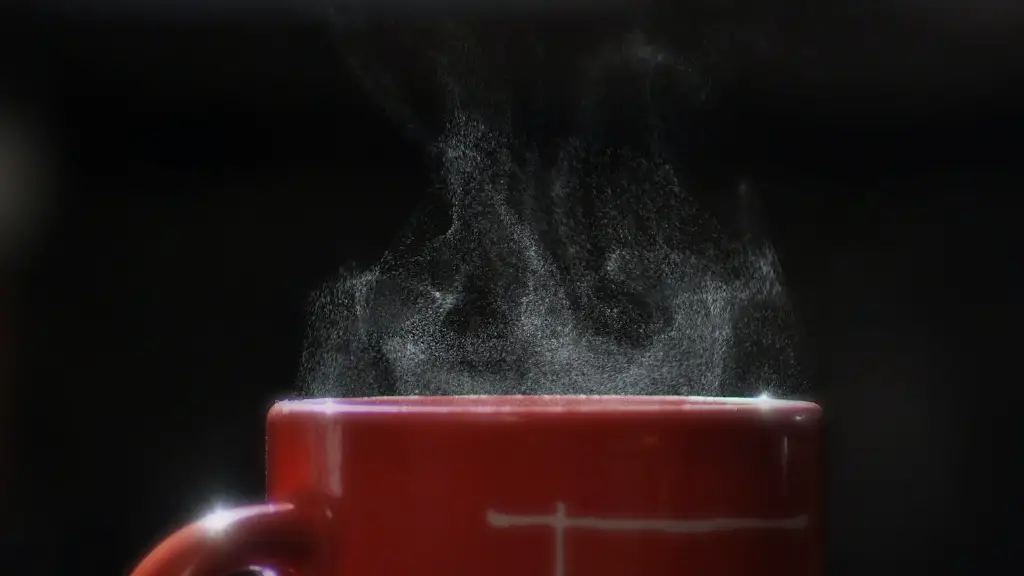Is drinking coffee like drinking water?
Coffee is one of the world’s most widely consumed drinks. It is widely used for its energizing effects, as well as for its unique flavours. In recent years, coffee has become increasingly popular as an alternative to drinking water. But is it really a good substitute for water?
Many nutritionists maintain that while coffee can provide some health benefits, it cannot replace the need for drinking water. Water is an essential part of a healthy diet. It helps in maintaining the body’s fluid balance, which is essential for proper functioning of the organs. It also helps to flush out toxins from the body and can even help in weight loss. It can also be used to reduce the risk of certain diseases such as cancer and diabetes.
In contrast, coffee does not offer any of the same health benefits that water does. While coffee contains some antioxidants and can help with alertness, it does not provide any of the important nutrients that water does. As well, the caffeine in coffee can actually be quite harmful in large amounts, as it can cause dehydration, anxiety, and insomnia.
Furthermore, experts warn that coffee should not be used as a substitute for water, as it can actually inhibit the absorption of certain vitamins and minerals. This is because caffeine, like many other substances, can interfere with the absorption of vitamins and minerals, reducing their availability in the body. This can have a negative effect on your health, as it reduces the amount of important nutrients available for your body to use.
Therefore, while coffee can be enjoyed in moderation and can offer some health benefits, it is important to remember that it cannot replace water in the diet. Water is essential for life, and should always be the primary source of hydration. Additionally, drinking too much coffee can have negative health effects, as the caffeine can cause dehydration and a lack of important nutrients in the body.
Potential benefits of drinking coffee
Recently, some studies have suggested that drinking coffee can have some health benefits. It is thought that the antioxidants found in coffee may be able to reduce the risk of certain diseases such as coronary heart disease, certain types of cancer, and Alzheimer’s disease. Additionally, research has also suggested that drinking coffee can improve physical performance and alertness, as well as reduce the risk of stroke and diabetes.
While these studies are promising, it is important to remember that more research is needed to confirm these potential benefits. Additionally, with any health benefit, it is important to remember that it is possible to overdo drinking coffee. Therefore, while drinking coffee may have some potential health benefits, it should always be done in moderation.
Alternatives to coffee
If you’re looking for an alternative to coffee that still provides energy, there are several other beverages you may want to consider. For example, matcha and green tea are both good alternatives to coffee, as they contain natural caffeine and are thought to have some health benefits, such as improved mental clarity and alertness. Additionally, if you just want a boost of energy, a natural energy drink such as guarana is a good option. You can also look for naturally flavoured sparkling waters, or a vitamin-infused drinks.
While coffee can be an enjoyable beverage, it is important to be aware of its potential side effects. Instead, it may be worth considering other drinks that provide energy, taste good, and are kinder to your body.
Impact on performance
Coffee can have an impact on physical and mental performance. It has the potential to improve focus and alertness, but excessive consumption can also have a negative effect. Studies have shown that drinking too much coffee can lead to irritability, and over-consumption can even lead to anxiety and depression. Additionally, drinking too much coffee may interfere with sleep, which can leave you feeling drowsy and impair your physical performance.
For those who are looking to improve their physical performance, it is important to make sure that you are getting enough rest each night. Additionally, if you do decide to drink coffee before exercising, it is important to remember that it is best to do so in moderation, as too much can actually impair your performance.
Substituting coffee for other drinks
For those who are trying to limit their coffee consumption, there are other drink options available. Many herbal teas can provide a boost of energy, as well as provide some health benefits. Additionally, there are also low-caffeine alternatives to coffee such as teecino or dandelion coffee. These beverages can still provide a coffee-like taste, without the jittery effects of traditional coffee.
For those who are looking to reduce their coffee intake, it is important to remember that there are other beverages available that can provide energy, taste good, and are more beneficial for your health.
Other caffeine sources
Coffee is not the only source of caffeine available. Many soft drinks contain caffeine, as well as some energy drinks and even chocolate. All of these sources of caffeine can have a negative effect on the body if they are consumed in excess, as they can cause dehydration and can interfere with sleep quality. Additionally, the sugar content in some of these drinks can be quite high, and can contribute to weight gain.
For those who are looking for another source of caffeine, it is important to remember that these beverages should be consumed in moderation, as they can still have a negative effect on your health. Additionally, it is important to be aware of the sugar content, as this can be quite high in some of these beverages.
Moderation is key
Ultimately, it is important to remember that moderation is key when it comes to coffee and other caffeinated beverages. While coffee does have some potential health benefits, it should always be consumed in moderation. Additionally, water is the best choice when it comes to hydration, as it provides essential nutrients that coffee cannot.
Finally, it is important to remember that coffee should not be used to replace other drinks in your diet. There are other drinks available that can provide energy while still being kinder to your body, such as herbal teas or low-caffeine beverages. So, if you are looking for an alternative to coffee, there are plenty of other options available.




